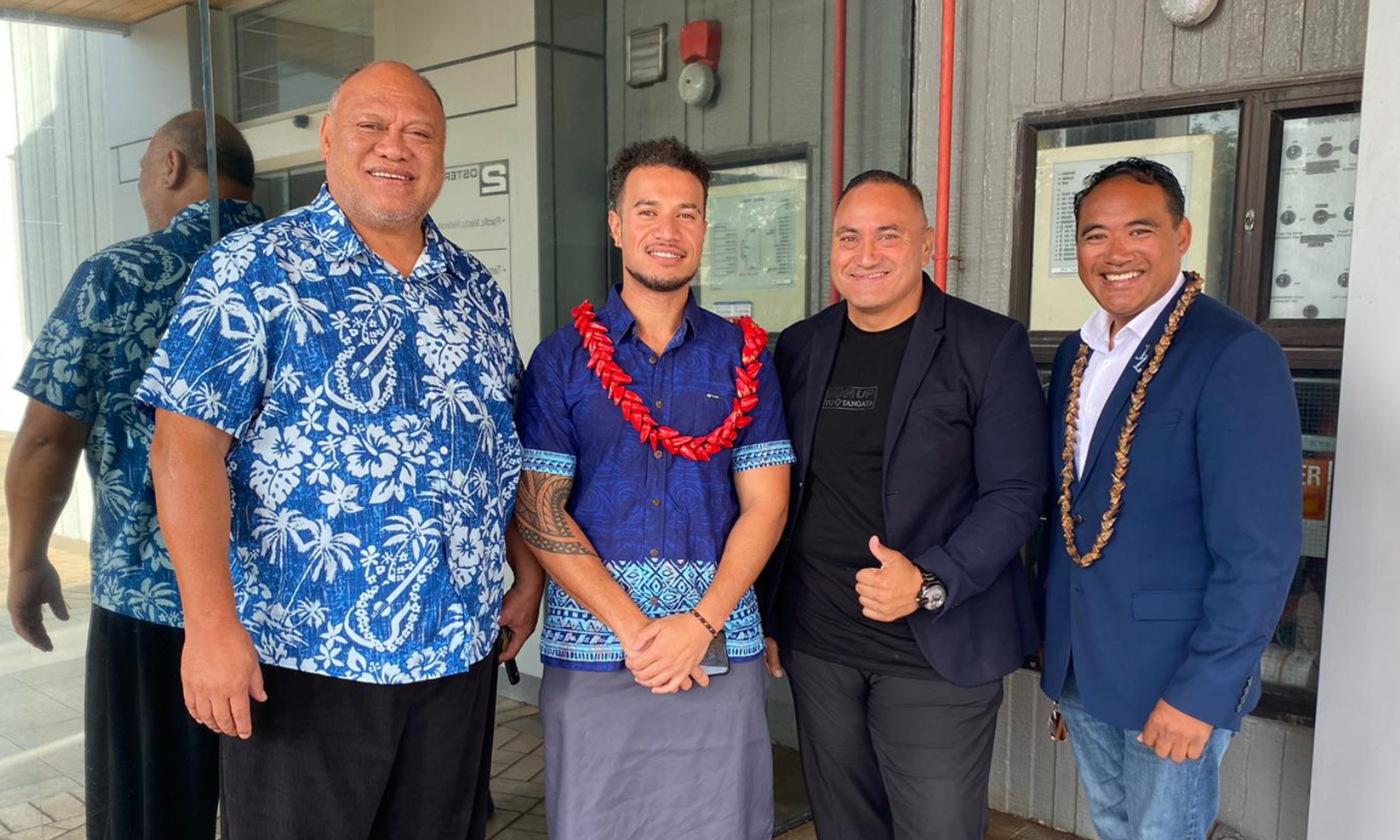

Dr Michelle Schaaf, Anae Arthur Anae, and Malakai Koloamatangi react to the upcoming changes to Pacific visitor visas.
Photo/Composite
Mixed reactions as NZ doubles visa terms for visitors from the Pacific
The new visitor visa terms are being celebrated, but critics express concerns about high application costs, slow processing times, and the need for a transition to visa-free travel.


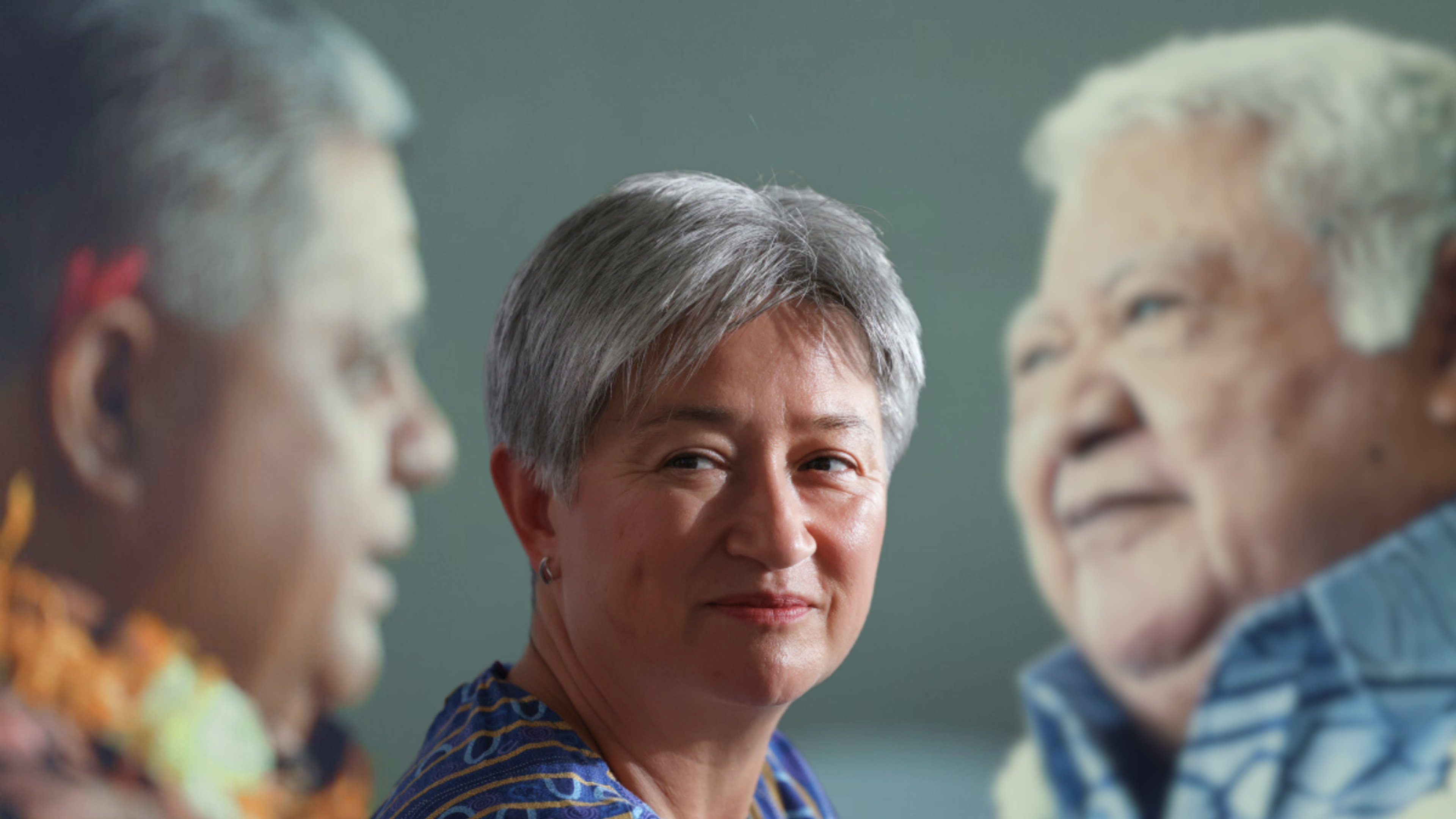
Australia rugby funding for Sāmoa on hold amid governance dispute

Off-leash dogs cause safety concerns on Auckland shared path
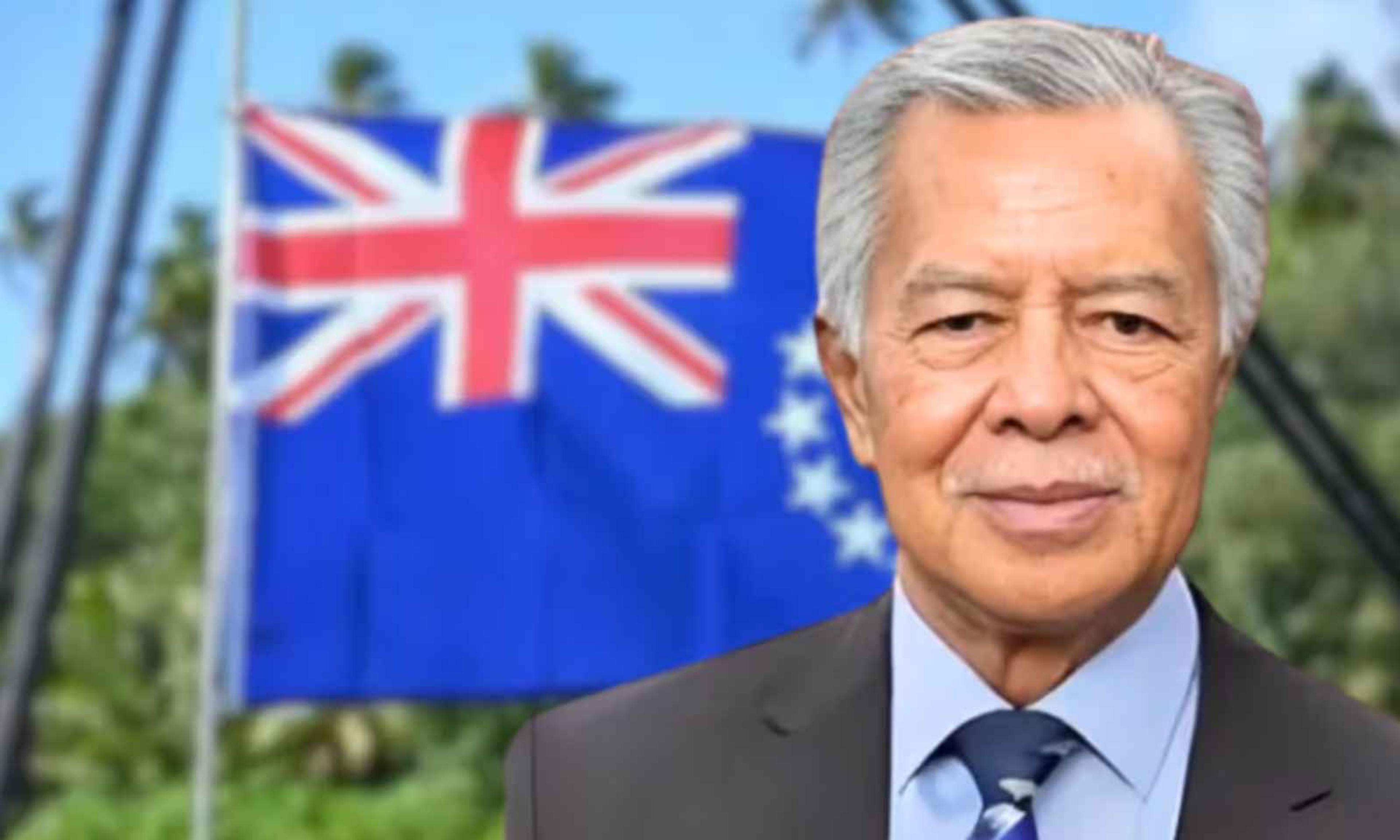
Former Cook Islands PM urges continued Cook Islands–New Zealand partnership


Papatoetoe election rerun highlights low voter turnout

Australia rugby funding for Sāmoa on hold amid governance dispute

Off-leash dogs cause safety concerns on Auckland shared path

Former Cook Islands PM urges continued Cook Islands–New Zealand partnership
The recent decision to double the visitor visa duration for Pacific Islands Forum (PIF) nations has received mixed reactions from advocates in the region.
Starting in July, visitors from member countries to New Zealand will be eligible for a multi-entry visitor visa valid for 24 months, up from 12 months.
Foreign Minister Vaovasamanaia Winston Peters, who is currently on a tour of the Pacific, says the change reflects the strong ties between Aotearoa and its Pacific neighbours.
“We deeply value our Pacific relationships. Being able to visit New Zealand to connect with family and friends is an important part of this,” Peters says.
Anae Arthur Anae, a former National MP, says this is a step forward.
“I'm very excited to receive this news after the battle that we've been trying to get through. This is an indication of the change that's coming,” Anae says.
But he is seeking clarification on the finer details before celebrating the achievement.
Anae is leading a petition advocating for Pacific people from Fiji, Sāmoa, Solomon Islands, Tonga, Tuvalu, and Vanuatu to receive a three-month visitor visa when they arrive in New Zealand.
He commends the Government for recognising “the way we’ve been treated for so long”.
“The effort has been now made by the Minister of Immigration and the support of Winston to get it here, but if the staff do not take action to move quickly and on the applications from our people, and especially those who want to come for funerals and emergencies, we've got another battle on our hands to sort that out.”
Dr Malakai Koloamatangi, a political scientist, has stronger views on the issue.
“It’s obviously a stop-gap measure,” he says, calling the situation concerning and advocating for visa-free travel as the ideal solution.
Koloamatangi says that while the extended timeframe simplifies processing and reduces costs, it remains unnecessary for families with frequent visitors.
“We sponsor relatives and so forth that come from Tonga, and it is problematic. It's a long process that's costly in terms of time and money.”

Photo/File
Anae calls for faster visa processing during emergencies and poses the question to politicians: “Wear our shoes. Your mother’s died. Your father, brother, sister. Your young child died and you can’t come, how do you feel about that?”
The application fee for a multi-entry visa is $341, and the standard processing time is two weeks. Each stay lasts up to six months, and visitors can study for up to three months.
Prime Minister Christopher Luxon announced in March that visa-free travel for Pacific Islanders was “not a priority”.
Changes to trans-Tasman travel
In November, a new measure will allow Pacific travellers with a valid Australian visitor visa to visit New Zealand for up to three months. These travellers must only purchase an electronic travel authority (NZeTA) for $17.
Immigration Minister Erica Stanford describes the changes as “flexible and nuanced solutions” to create a “stable and predictable immigration system”.
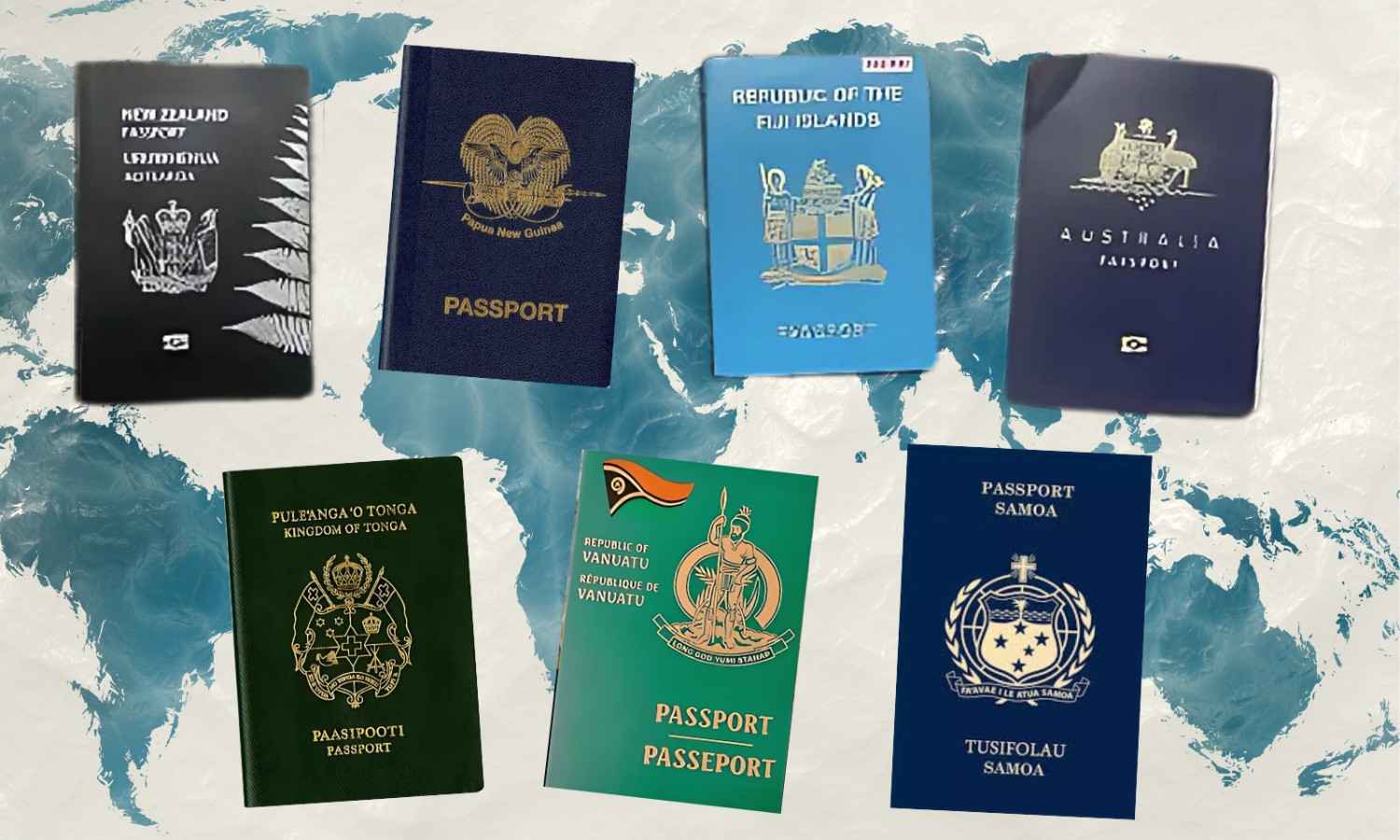
Passports from across the Pacific region. Image/File
“By removing the need for a separate visitor visa for those people travelling from Australia, we are simplifying the process for Pacific visitors by significantly reducing the cost and time.”
The new visa waiver for travellers from Australia will be trialled for 12 months.
Local and global implications
Dr Michelle Schaaf, associate dean (Pacific) in the humanities at Otago University, says the new rules have advantages and challenges.
“Opening up multiple entry visas for Pacific visitors to New Zealand may present significant opportunities for strengthening regional ties, boosting the economy, and promoting cultural exchange. However, it also poses challenges such as the risk of overstaying and administrative burdens.”
She believes the changes might increase tourism and business opportunities, potentially addressing labour shortages, but warns that the government tread carefully.
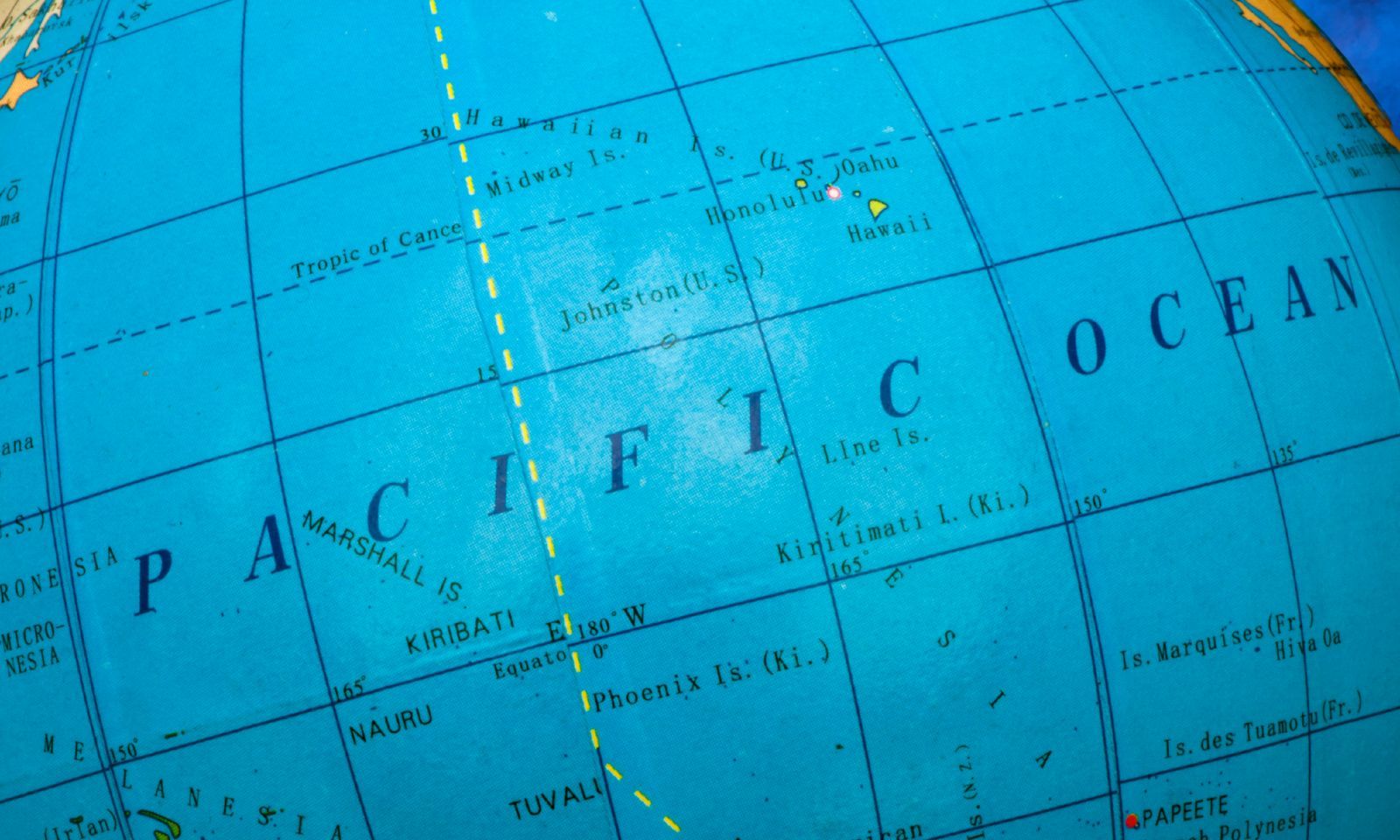
Photo/File
“This is a savvy positioning of the current New Zealand Government as a leader in regional cooperation and support for Pacific nations.
“[However] there is potential to enhance geopolitical tensions if visa policies are perceived as unfair or discriminatory, and political backlash if the policy is seen as lenient or if issues like overstaying become prevalent.”
Koloamatangi says visa-free travel is essential for partnerships such as the Pacific Agreement on Closer Economic Relations (PACER).
“If that’s absent, then the free trade and all that actually doesn’t make any sense,” he says. “You need to have that as a partner for more trade and so forth between the Pacific and New Zealand.”
Watch the livestream of the Press conference on Tonga's BroadCom FM87.5: